ABOUT US
Kelmarna is a 40+ year old organic community farm in central Auckland on a mission to
transform our food system.
Our journey began in 1981 when Paul Lagerstedt secured the lease from Auckland Council, giving rise to the Kelmarna Community Gardens Trust.
The initial endeavour was to showcase self-sufficiency through organic growing practices.
Over the years, the gardens have developed through various chapters. Most significantly, for 20+ years they were managed by Framework Trust and the focus was on supporting people living with mental illness through providing pre-vocational training.
In 2015, Framework Trust moved away from managing the gardens so the Kelmarna Trust set a new direction — to champion and demonstrate a regenerative local food model that supports climate change mitigation, urban resilience and community wellbeing.
Our long and rich history is still woven into what we do today, contributing to the active community farm and learning environment we welcome you to visit. Well-being and peace still lives right at the heart of the experience. To find out more about our history check out the timeline below.
1981 - 1987
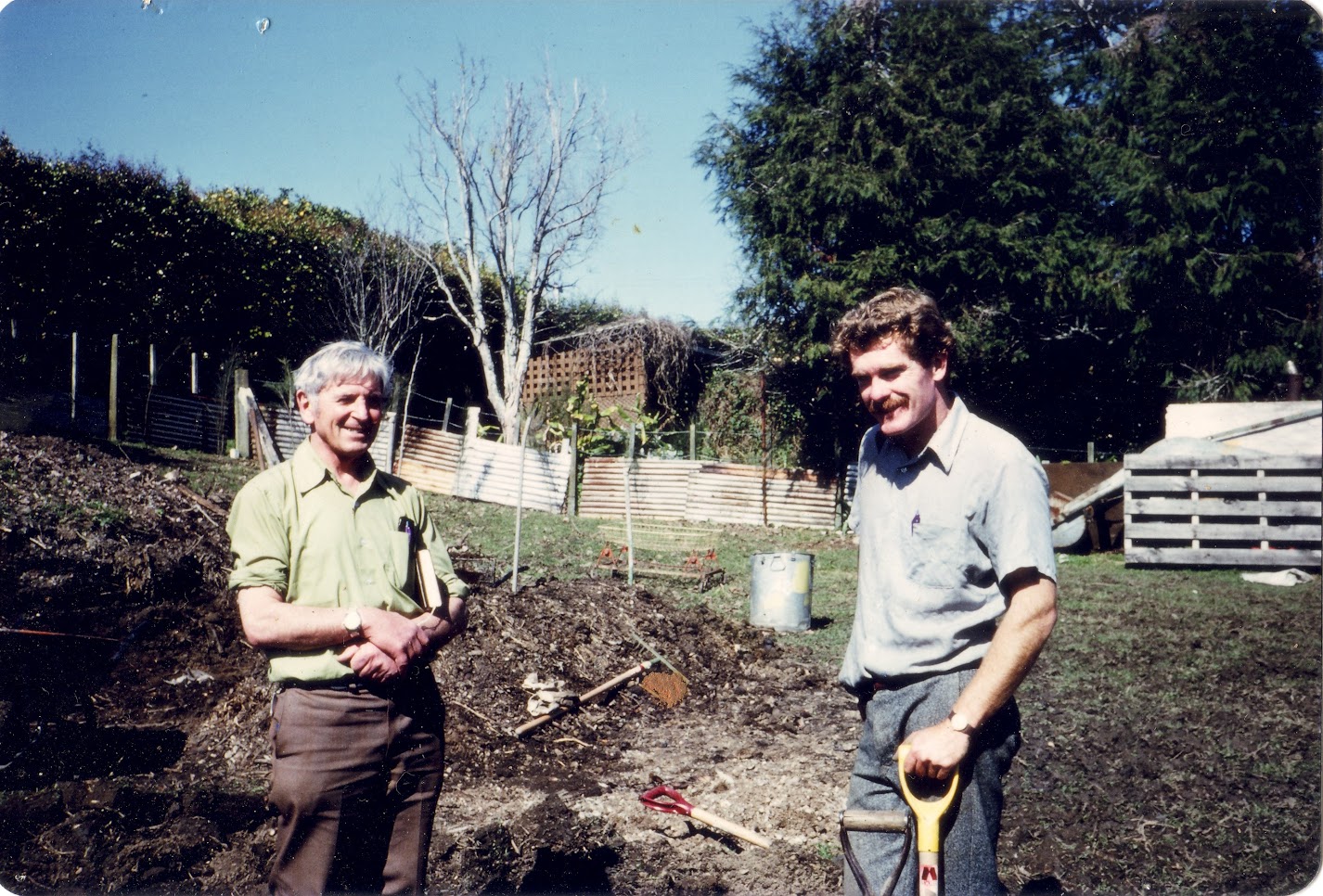
Paul Lagerstedt was the initial visionary who secured the lease from Auckland City Council. A group formed around him and they started the Kelmarna Community Gardens Trust. Initial funding came through providing 6 month training placements to unemployed people.
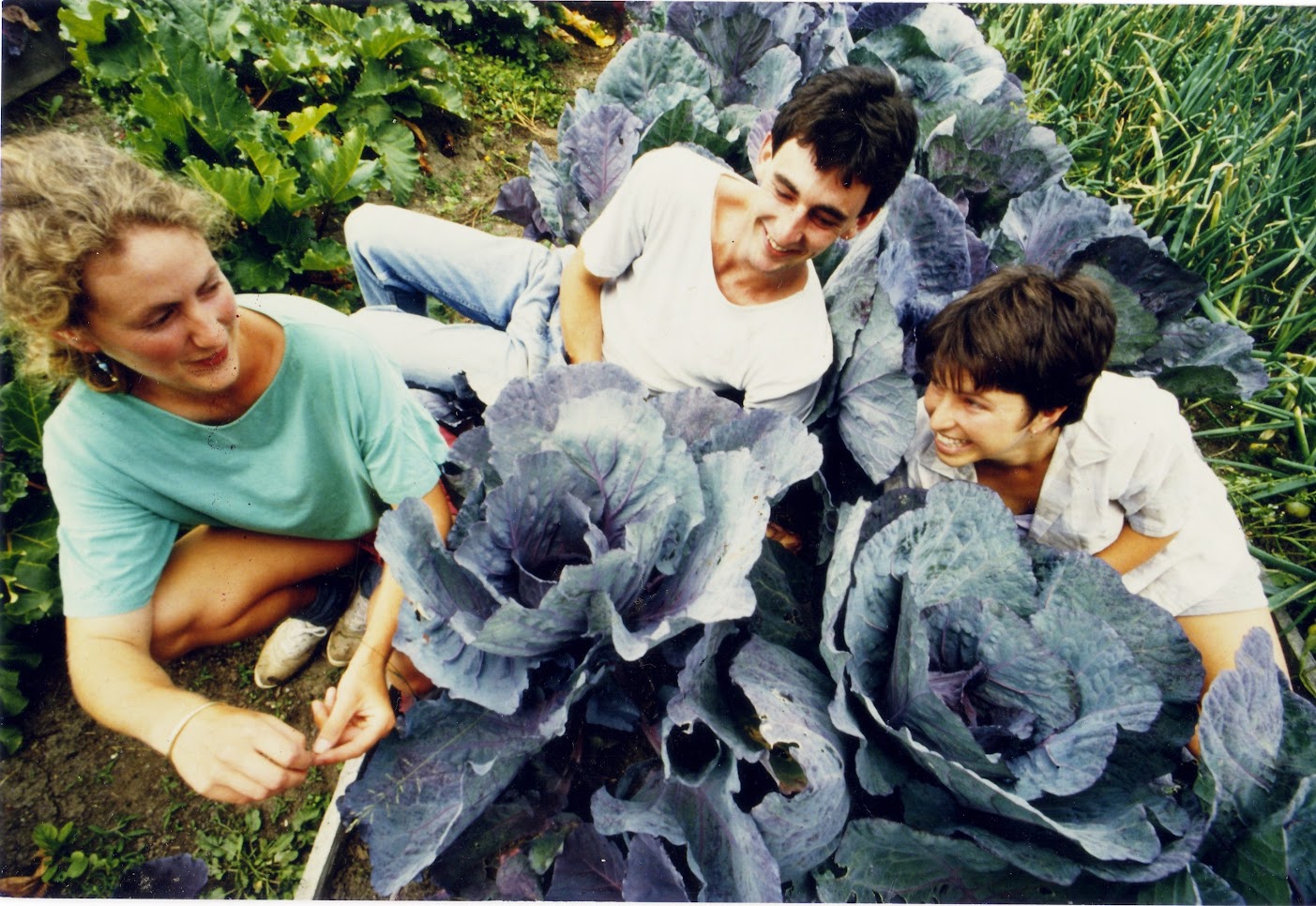
1987 - 1989
In the late 80’s the Kelmarna Trust sub-leased the site to a small group of people who tried to make their living off the land.
1989 - 1992
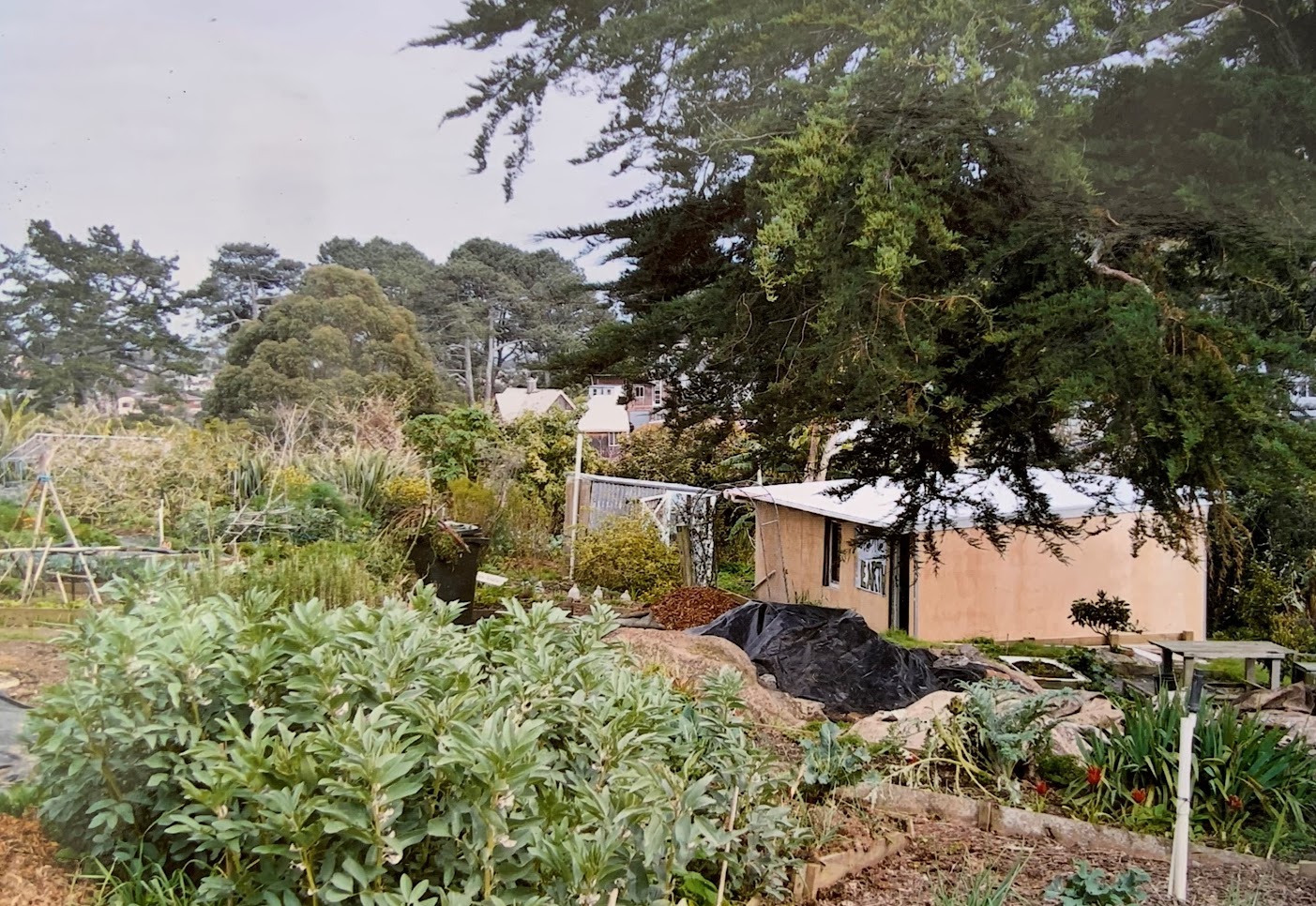
The next phase saw the site subleased to an organisation that ran ‘Training Programmes for Women by Women’. One of their first jobs was to refurbish the cowshed which was unusable at that stage. Their focus was again on teaching people how to grow food organically.
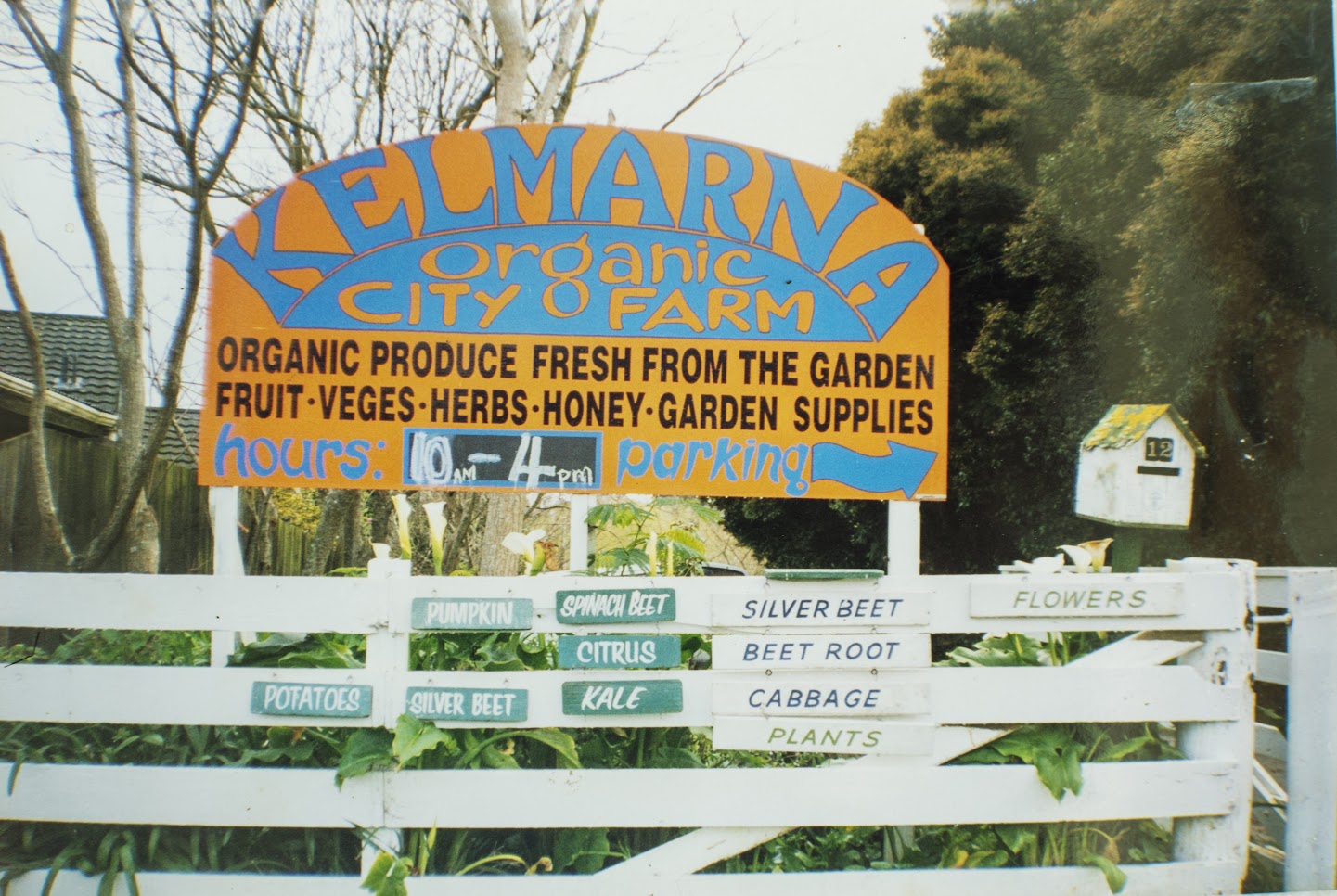
1992 - 1995
During this time the gardens were subleased to a partnership between Framework Trust, a mental health NGO and the tertiary education provider Unitec.
1996 - 2015
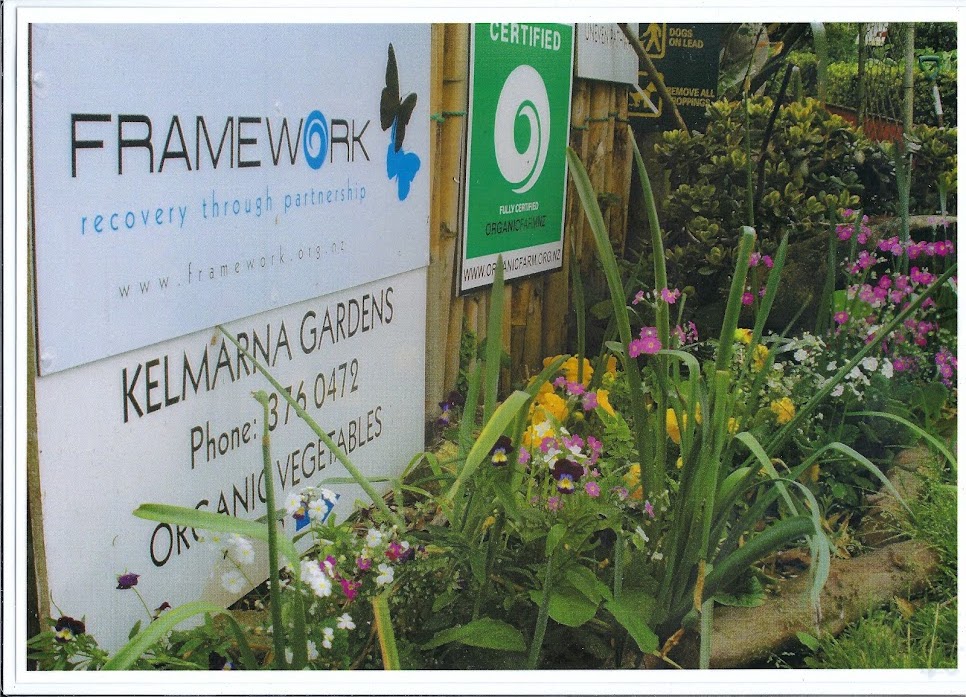
Framework became the sole sublessee. The focus was on supporting people who had experienced mental illness through providing pre-vocational training. This became the longest chapter of the gardens, running through till 2015.
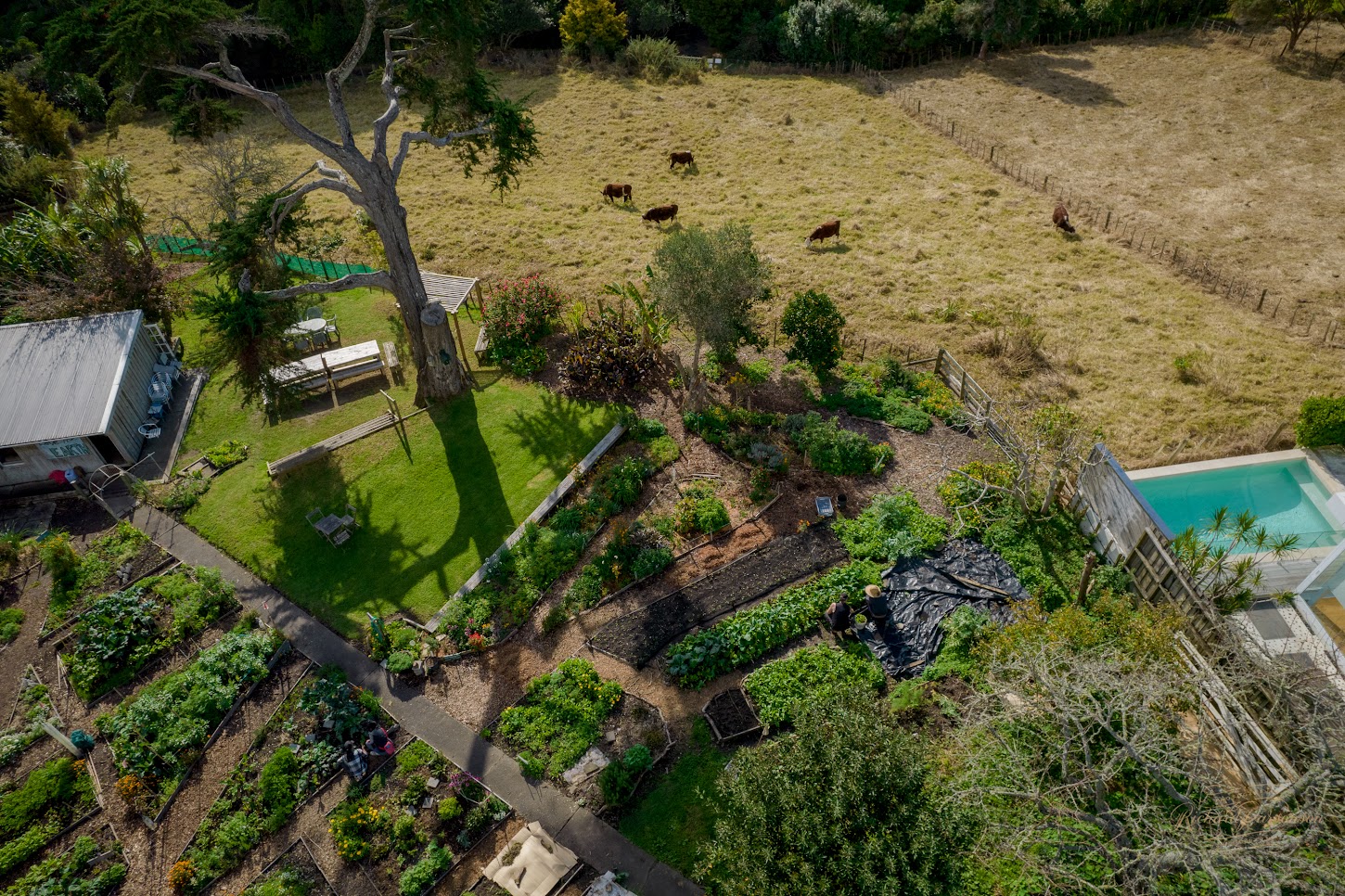
2015 onwards
When Framework trust pulled out of managing the gardens the Kelmarna Trust once again took over day to day management.
Market Gardening
Kelmarna has just over 700m2 in vegetable gardens, the majority of which is managed communally by our staff team and volunteers. Produce is sold directly to our community, giving them access to super fresh, seasonal, nutrient dense food. In the market garden, which is our larger scale space, we’re aiming to demonstrate financially and ecologically-viable market gardening, and train future farmers in the skills they need to replicate this, through our Farmhands programme, workshops, and other volunteering opportunities.
Food Forest
Our multilayered food forest contains a large variety of fruit trees, perennial herbs, and companion plants, as well as annual crops like pumpkins and potatoes that form the staple foods of our volunteer lunches. The variety of crops from the food forest help to add more diversity to our selection of produce for sale, so our community has more choice when eating seasonally. The forest also provides important habitat for birds and insects, and forage for bees.
Sheep
Within the paddocks we graze sheep, which form a key element of the system, supporting healthy nutrient and water cycling for the pasture and trees. By rotating the sheep through the paddocks in stages we’re also helping to improve soil microbiology and sequester carbon.
Chickens
Our layer hen project aims to be a truly regenerative model for egg production – using our perennial crops, waste products from our community, and insects we grow on-site to reduce our dependence on industrial feed grain. We’re making our eggs available through a Community Supported Agriculture scheme, which reflects the reality that eggs are a seasonal food, with peaks and troughs during the year.
Our Friends the Bees
Our Kelmarna beehives are managed organically, the bees are supported by the many and varied flowering plants across our site, and in the surrounding area. Kelmarna Honey from our hives is seasonally available to buy in our Farm Shop.
Closing the Loop with Composting
We demonstrate diverse composting systems on-site, including hot composting, worm farming, and bokashi, as well as offering composting options to local businesses and households through our community composting social enterprise, Soil Factory. Finished compost is returned to the soil at Kelmarna, adding fertility and structure to our vegetable beds, and helping us to grow more food and replenish the soil.
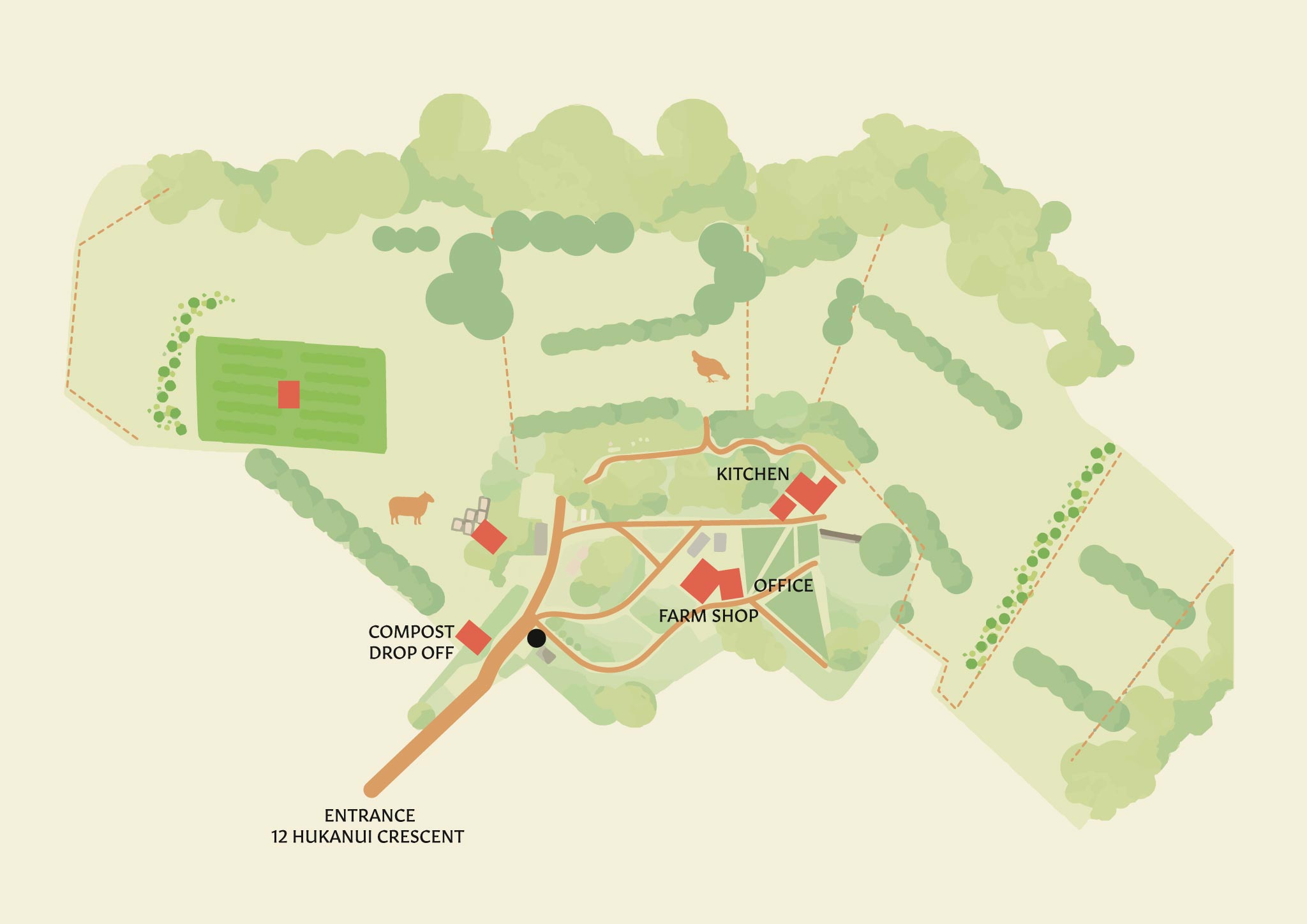
Pasture Power
The farm includes 7 small paddocks, sloping away from the farm down to Cox’s Creek Reserve. These are populated with many varieties of fruit, nut and native tree plantings in order to create a silvopasture system – an agroforestry approach which combines trees and grazing livestock in a symbiotic relationship. We think most farms should have more trees, and that agroforestry systems have a huge part to play in transforming our food system.
The development of this Silvopasture was part of our Paddock Development Project, a raft of integrated new enterprises creating a huge range of opportunities in our paddocks, for greater food production, education, community engagement, biodiversity, carbon sequestration, and job creation.
Integration of Animals
Within the paddocks we graze sheep and house a flock of layer hens. Our sheep form a key element of the system, supporting healthy nutrient and water cycling for the pasture and trees. By rotating the sheep through the paddocks in stages we’re also helping to improve soil microbiology and sequester carbon.
Our layer hen project aims to be a truly regenerative model for egg production – using our perennial crops, waste products from our community, and insects we grow on-site to reduce our dependence on industrial feed grain. We’re making our eggs available through a Community Supported Agriculture scheme, which reflects the reality that eggs are a seasonal food, with peaks and troughs during the year.
Our People
Our work is made possible in part by the generous support of these awesome organisations and people.
Thank you!
FUNDERS
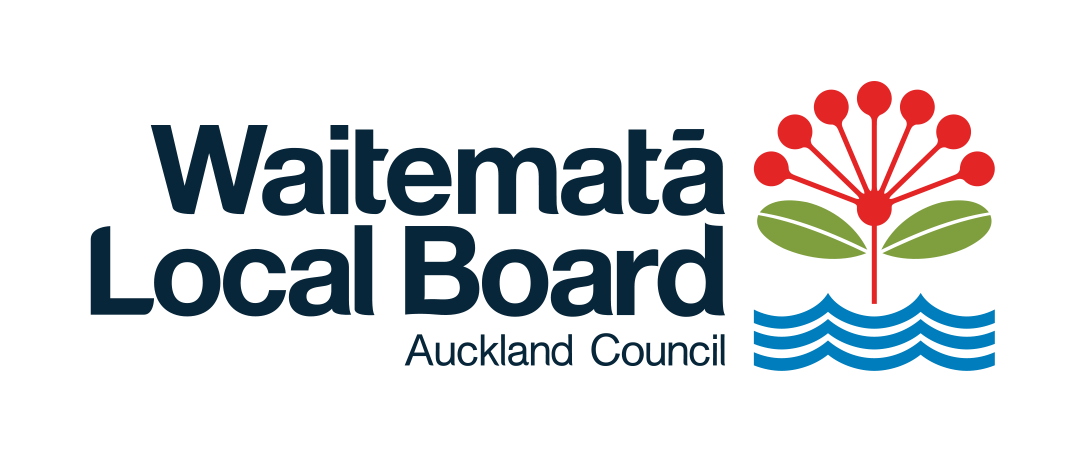


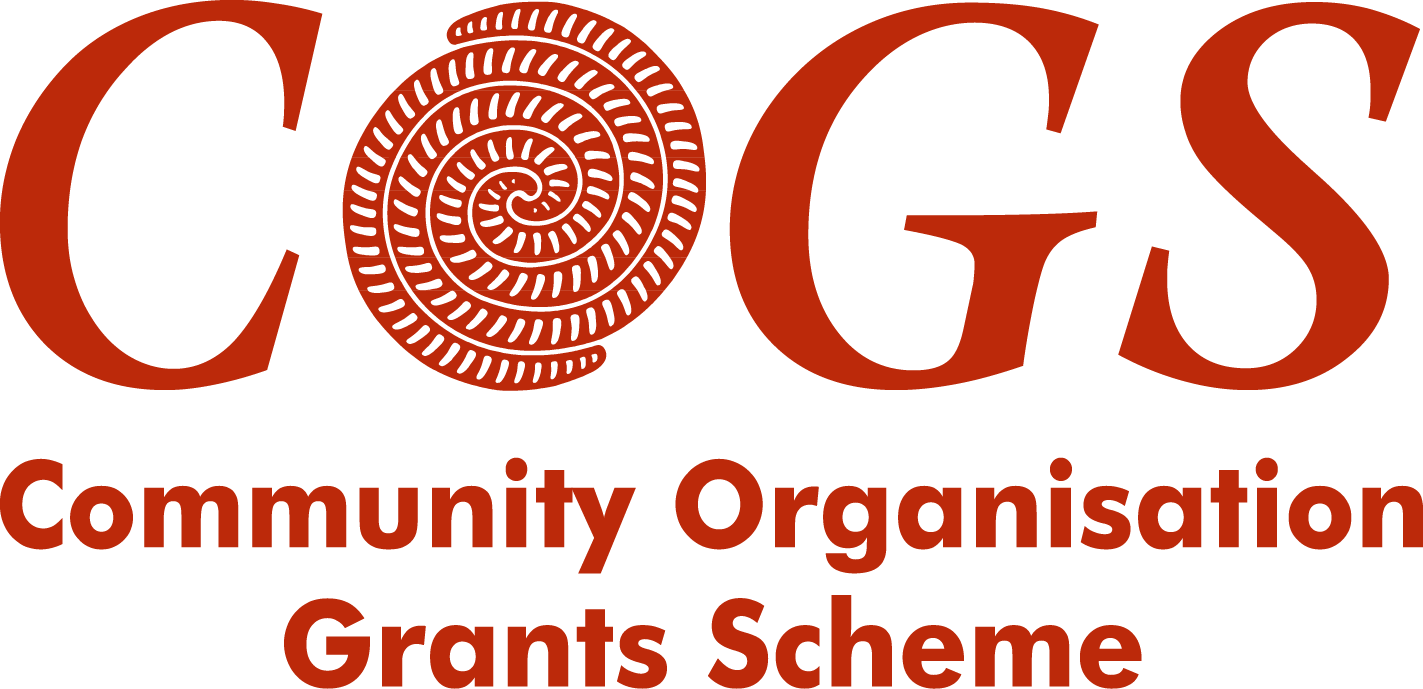
BUSINESS SPONSORS





SUPPORTER BRANDS







FRIENDS OF KELMARNA MEMBERS
Connie Daniels
Vanessa Cohen
Tracey Taylor
Nic and Leonie Wise
Janine Nicholson
Greg Fahey & Toni Nealie
Philipp Grunert
Chloe Eberly
Eliot Pryor
Janet Chamberlain
Suzana Bjelic
Billy Liu
Renee Jones
Annaida Varghese
Paige Sims
Alex Bonham
Gregory Whiting
Nicola Dodds
Pascal Gillies
Ray Kelly
David Lyall
Gordon Ikin
Michelle Deery
Jane Strange
Winnie Lenihan
Chris Calvert
Gwen Shaw
Nicola Donald
Fiona and Richard Watt
Astrid Varchmin
Laurette Roberts
Penny Anutosh Cusack
Te Kōrari Pohe
Brigid Lenihan
Kathryn Buis
Jane Ardmore
Bronwyn Gooder
Chantal Knowles
Helen Simpson
Shaun Field
Stephanie Cha
Odette Lake
Chris Taylor
Melanie Bell
Michael Hanna
Colleen Hodge
Kiri Baskerville
Susan McGregor Bevan
Delaney Mes
Nicole Linton
Alison Bonney
Ashleigh Payne
Jude Lambert
Jamie Peters
Olivia Coote
Bella Burgess
Daniel Blyth
Suzy Timpson
Rennae Arbon
Alison Brownie
Ann Wech
Alison Jepson
Andy Boor
Angela Saunders
Sara King
Brad Nichols
Ron Miller
Cedric Pirenne
Rereata Hardman-Miller
Daisuke Arao
Philippa Clark
Helen Franklin
Shirley Inggs
Andrea Alber Commissaris
Rosalie Yozin
Billy Crimson
Vicki Whatley
Sarah Martindale
Rosie Morrison
Anneliesje Dobbyn
Hui Zhang
Marie Bosak
Joanne Paver
Abi Rae
Anita Prohl
Grant Christie
Miranda James
Vicki Carpenter
Anna Klaptocz
Sally McAra
Deb Godinet
Seini O’Connor
Biddy Livesey
Nicki Carter
Rose Crozier
Stephen Canning
Mandy Scott
Heidi Sommerville
Stephanie Hollis
Chantal McTavish
Liz Pennington
Tracy Berno
Maurine Talpin
Geoffrey Norcliffe
Michelle van Zoggel
Sharon Wright
Michelle Ball
Bridget Henderson
Annabel Cave
Michael Graham-Stewart
MJ Bethell
Charlie and Florence Grainger
Suzanne Watt
Margaret Malaghan
Malcolm Idoine
Dianne Ma
Stephen Brown
Nick Goldwater
Delphine Yu
Thom Gill
Deborah & Tony Morley
Lucy Travaglia
Penelope Arnold
Sarah McEwan
Heather Gummer
Jasmine-May Broughton
Madeleine Edwards
Amy Currie
Gill Minogue
Jennifer Collinson
Bec Murphy
Marie Culpan
Ruby Gibson
Georgie Craw
Jane Cherrington
Liz Willis
Susan Herald
Hannah Adamson
Dwayne Carroll
Deborah Palmer
John Williams
Michelle Johnstone
Selena Reid
Vivian Bryant
Lisa Busch
Louise Nash
Loren Conway van Schalkwyk
Zoe Brentnall
Tom Bannister
Tess Burnett
Tara Spencer
Paula Wilkie
Gwen Norcliffe
Robyn Gray
Lena Kovac
Sandra Anderson
Steve Hirst
Ranitea Sing
Jan Morrison
Luisa Cosio
